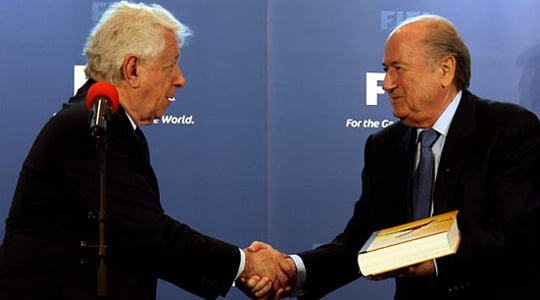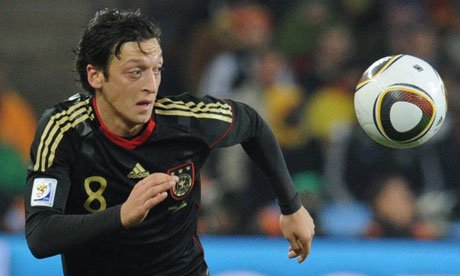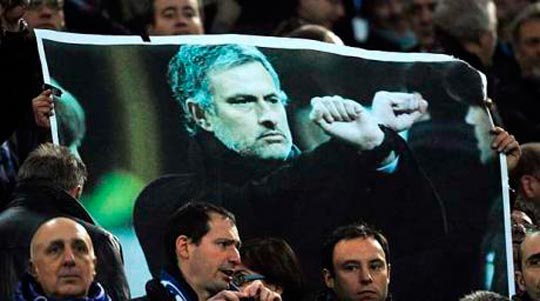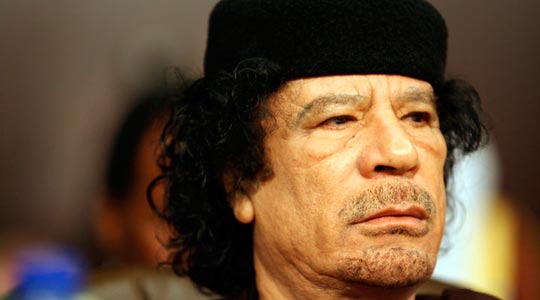Why it’s advance Australia fair for 2022

White smoke was spotted over Wembley on Tuesday as David Dein, the international president of England’s World Cup bid, confirmed the nation was about to pull out of the race to stage the competition in 2022 and focus its efforts on winning the vote to host the 2018 edition.
In related news, the BBC understands the Vatican City is set to make a statement about the Pope’s religious leanings and the International Association for Bear Research and Management is on the verge of discovering what bears do in the woods.
Please do not think I am ungrateful to Dein for clearing up this matter of almost no debate, on the contrary. With England out of the picture for 2022, we can now look dispassionately at what I think is the more interesting of Fifa’s two World Cup choices.
On a personal level, I care more about the result of the likely England v Russia v Spain/Portugal tussle for Europe’s turn in 2018.
But on a professional level, I am intrigued about the challenge world football’s governing body has set itself when it makes its 2022 decision in Zurich on 2 December.
By deciding to choose two World Cups in one sitting, Fifa is probably giving itself an eight-year break from the hassle of choosing where next to take its biggest event/fundraiser but it is also stretching the limits of what can be safely predicted about the type of World Cup the world’s game will need/want in 12 years’ time.
This question was foremost in my mind (honest) when I went along to a press briefing by Japan’s bid for the 2022 World Cup (they dropped their 2018 claim a few months back) in London last week. With the Land of the Rising Sun up against Australia, Qatar, South Korea and the United States, I was hoping for illumination. I certainly got that.
“The initial reaction is this is a gimmick. Getting past that has been a communication challenge.”
Gulp. Journalists are usually ready for anything – tight deadlines, bored interviewees, long lunches – but there are still a few things that catch us unawares: the truth, for example.
So when sports marketing guru and Japan bid advisor Patrick Nally stood up at the end of the presentation and admitted the pitch is a bit, erm, gimmicky and no, the voters don’t get it…well, I was pleasantly surprised and a tiny bit relieved.
Surprised because bidders for major sports events never acknowledge “challenges” until things start falling down and relieved because this suggests Fifa will be making its 2022 choice for more old-fashioned reasons than which country can provide the most revolutionary “football contents” and the best “hyper applications”.
I write “suggests” because reading too much into the nuanced language of bidding contests is a recipe for that journalistic favourite, egg served on a bed of face.
But I’m willing to stick my neck out here, Japan’s bid will need more than the promise of lots more TV cameras at each game (200 compared to South Africa’s barely adequate 30), a nod to this century being “Asia’s” and something worthy about educational activities for 6,000 youngsters.
Those not-so-unique selling points are prerequisites for bids these days and Fifa’s 24 Executive Committee members, the electorate, will want to hear more about breaking new ground, providing the best stage for the world’s greatest players and what this World Cup will do for football’s march towards international sporting dominance.
Planting flagpoles on virgin territory plays very well at Fifa HQ and the “been there, done that” effect will not help Japan’s cause, or that of South Korea, Japan’s 2002 World Cup partner, which has also thrown its hat into the 2022 ring. The 17th World Cup was a cracker but it was only eight years ago.
Qatar, on the other hand, will be pinning its hopes on Sepp Blatter’s pioneering instincts. The Fifa boss has a deciding vote in the case of a tie and his influence is considerable. Having taken the tournament to Africa, a first ever Arab World Cup would look great on his CV.
Unfortunately, that is the only place a Qatari World Cup makes sense. With a population of just over 1.6m and average daytime temperatures in excess of 40 degrees, the desert kingdom’s bid is even more gimmicky than Japan’s.
The Middle East clearly needs to diversify its economy, and football in the region should be encouraged, but does Qatar need a dozen air-conditioned, Fifa-standard football grounds (not to mention the facilities and hotel beds required to stage a month-long tournament that features 32 teams and 64 games)?
I don’t think we will have to wait until December for an answer to that. The chairman of Fifa’s inspection team, Chile’s marvellously-monikered Harold Mayne-Nicholls, put the kibosh on Qatar earlier this month when he said staging a World Cup there “would pose a number of logistical challenges”.
There’s that c-word again. Nobody likes a challenge.
With this in mind, the US package looks strong: large sports-mad population, proven track record in staging big events, no obvious infrastructure weaknesses and plenty of scope for commercial activity.
On the minus side, like Japan and South Korea, memories of the American World Cup in 1994 are still fresh. But unlike its Asian rivals, the US bid has the unequivocal support of its neighbouring countries – it’s not just Labour Party elections where bloc votes are significant.
But will this be enough to make up for a slightly lacklustre campaign (buried within Mayne-Nicholls’s farewell platitudes were concerns about the reliance on NFL stadia and an overly inward focus to the bid’s legacy plans)?
This brings me to the bid that survived the inspection visits with the brightest prospects.
Asian-facing but with ties to world football’s Oceania region, Australia ticks a lot of boxes. Infrastructure, track record, sporting tradition, nice weather, decent food, it’s hard to pick holes. The country’s politicians even called a time-out during the recent election campaign to show Mayne-Nicholls and co a united front. He seemed to approve.
It is still too early to talk about hot favourites and rank outsiders – more will be known when Fifa releases the technical reports next month – but Down Under is looking a decent bet for 2022.
Matt Slater




There are three negative issues with Australia, and wishing them away won’t solve them:
1. the time difference, which is worse even than in 2002;
2. the preponderance of non-rectangular stadiums, which are very poor for e.g. soccer and rugby;
3. the AFL/NRL issue, which is not just a question of stadiums: FIFA insists on no competing major sporting events for I think four weeks before, during, and two weeks after(?) the WC.
I doubt if attendance would be an issue: Australians will watch anything. But my feeling is that it’s clearly SK or Japan apart from the repetition issue – maybe they’re regretting sharing it in 2002?
I think Australia as well.
I’d almost certainly be supporting the US’ bid were it not for ’94, but I’d rather see how the country which gave us Sydney 2000 gets on, rather than going back to America – a nation which, given its level of interest in the Game, would be fortunate to receive a second world cup in the span of 30 years. If they do get it, good luck to them as they certainly have the capability, but I’d prefer Australia!
Qatar 2022 is a one city bid, despite what anyone argues to the contrary. A city at least six times smaller than London, in a country with an average football crowd of way less than 8000 cannot hope to host a world cup. And that’s before you even look at the temperatures, the number of hotels, the tourist appeal, the legacy etc etc.
Japan and Korea, you’re right, are just too soon.
‘Clearly Matt, you dont know much about the Mid East…In 12 years, the Mid East will be among the top 10 economies in the world, with the amount of oil that is still left here.’
Clearly you don’t know about country borders. The ‘Mid East’ cannot be amoung the top 10 economies in the world because is is a region not a country. The UAE might be, I can’t see how Saudi Arabia could be as its been making huge profits from oil for decades, so if its not been a top 10 economy before, its highly unlikely that will change now.
However, when the oil does dry up, the middle east will be in serious doo doo. I can only see the UAE surviving as a major economy, but probably Abu Dhabi only because Dubai is to much like a disneyland these days.
Fantastic articles great arguements and many excellent responses. Whilst most people have mentioned commonly held logistical factors influencing hosts’ choice – such as tournament rotation, how long since countries last held it, infrastructure, TV time differences and potential advertising audiences, weather, stadia etc…..I think it’s much much more cut and dried than that.
Reflecting your initial statement regarding England pulling out of 2022 bidding many say to support the U.S. bid for that year and gain their vote in return for 2018 – it proves the decision’s purely down to politics. Who can grease each others palms and offer the best trade-offs for votes. It’s probably arranged years in advance at the Bilderberg meetings truth be known. Sadly such decisions will never be so transparent to the public. A clear breakdown of voting blocks and reasons behind likely allegiances would be appreciated don’t you agree?